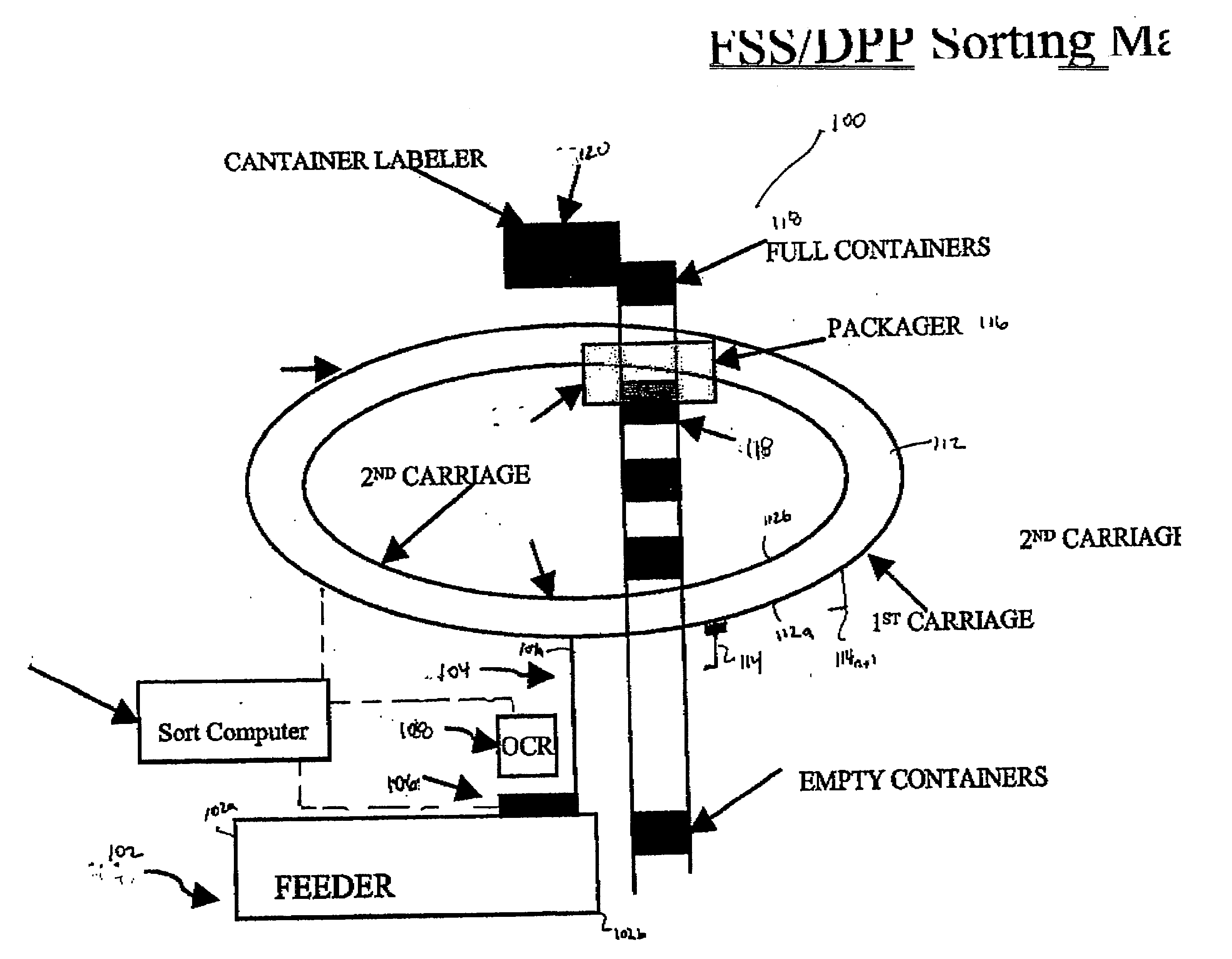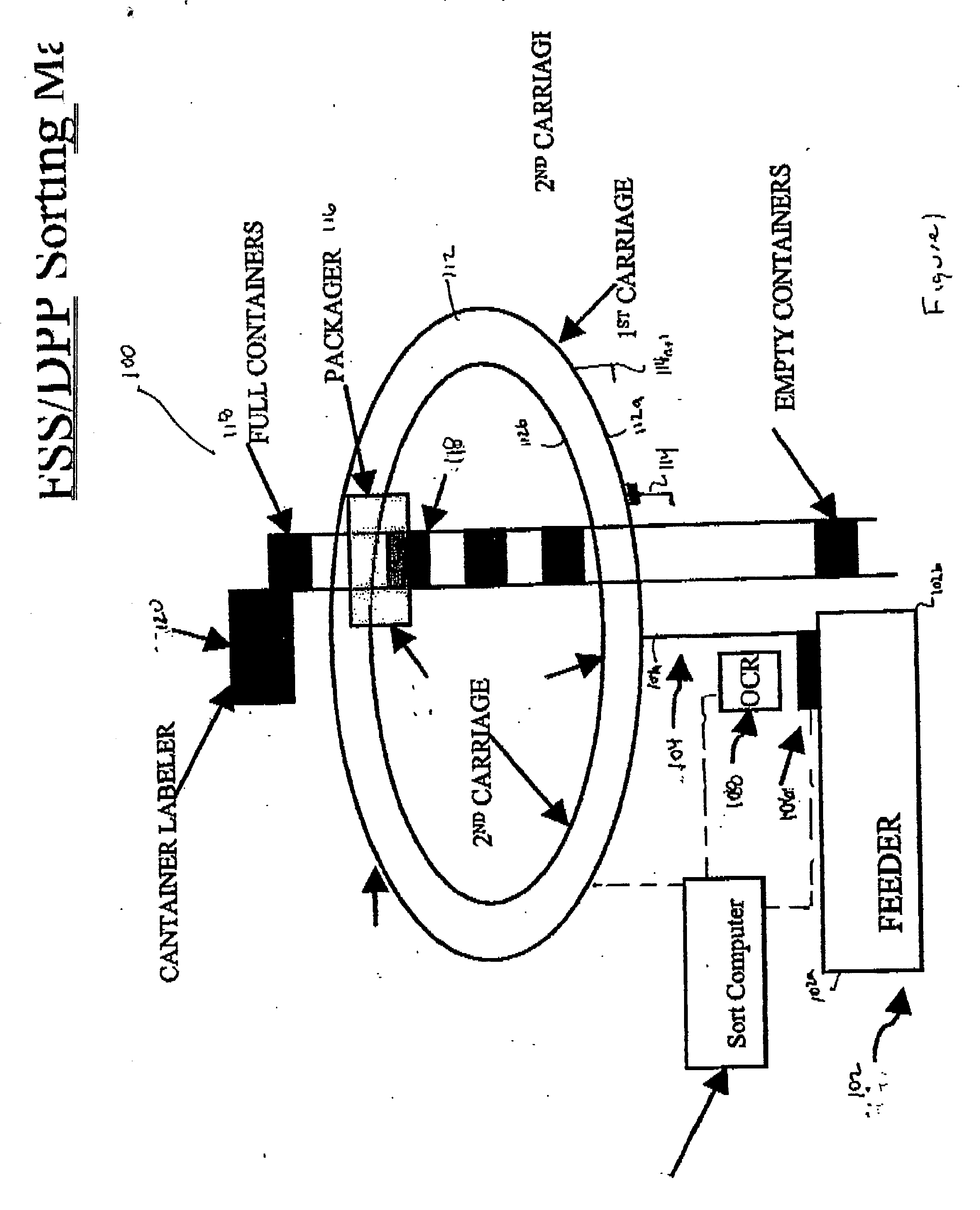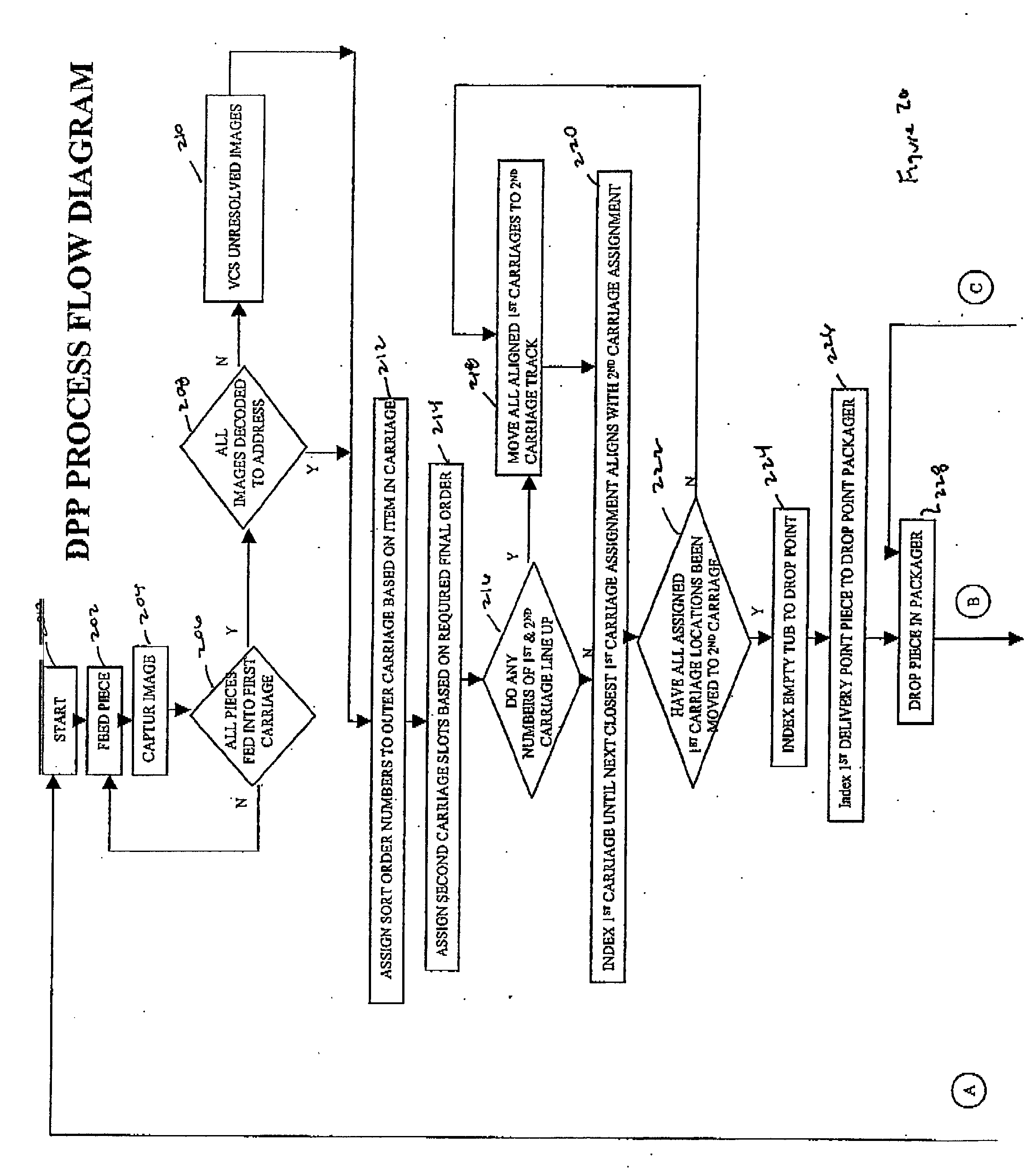Method for sequentially ordering objects using a single pass delivery point process
a delivery point and object technology, applied in the field of single-pass sequencer process, can solve the problems of increasing the damage to the mail piece, affecting and affecting the quality of the product, and achieves the effect of maintenance, reducing the cost of production, and improving the reliability of the system
- Summary
- Abstract
- Description
- Claims
- Application Information
AI Technical Summary
Problems solved by technology
Method used
Image
Examples
Embodiment Construction
[0020] The present invention provides a flexible method for sorting objects such as, for example, flats, mail pieces and other products or parts (generally referred to as flats or mail pieces). In the method of the present invention, only a single feed or pass is required through a feeder system to order and sequence the flats for future delivery. The method of the present invention may also be utilized in warehouse management systems by, for example, sorting products for assembly or internal or external distribution or storage. The method of the present invention provides the flexibility of tracking the flats throughout the entire system while using many known off-the-shelf systems. This reduces manufacturing and delivery costs while still maintaining comparatively superior sorting and delivery results. The method of the present invention also minimizes damage to flats, provides a single drop point, as well as increases the overall efficiency of the off the-shelf components such as...
PUM
 Login to View More
Login to View More Abstract
Description
Claims
Application Information
 Login to View More
Login to View More - R&D
- Intellectual Property
- Life Sciences
- Materials
- Tech Scout
- Unparalleled Data Quality
- Higher Quality Content
- 60% Fewer Hallucinations
Browse by: Latest US Patents, China's latest patents, Technical Efficacy Thesaurus, Application Domain, Technology Topic, Popular Technical Reports.
© 2025 PatSnap. All rights reserved.Legal|Privacy policy|Modern Slavery Act Transparency Statement|Sitemap|About US| Contact US: help@patsnap.com



